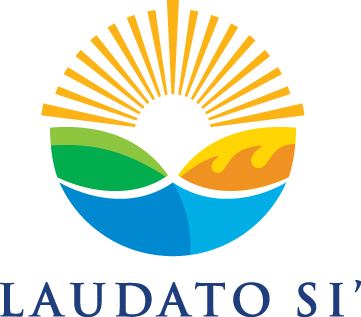 WASHINGTON (CNS) — Leaders of various faith traditions and civic leaders joined their voices with Catholics June 18 in praising Pope Francis’ encyclical “Laudato Si’, on Care for Our Common Home” and its emphasis on caring for and protecting all of creation.
WASHINGTON (CNS) — Leaders of various faith traditions and civic leaders joined their voices with Catholics June 18 in praising Pope Francis’ encyclical “Laudato Si’, on Care for Our Common Home” and its emphasis on caring for and protecting all of creation.
Rajan Zed, president of the Universal Society of Hinduism in Reno, Nevada, said in a statement that Hindus might not agree with the entire encyclical, but they appreciated the pope’s emphasis on linking care of the natural world with justice for the poor.
He also said he hoped the document would help shape the public policy, change people’s behavior and inspire other religious leaders to come forward to support care of the environment.
[hotblock]
In a statement to Time magazine, Imam Mohamed Magid of the Islamic Society of North America said that this Ramadan, Muslims should heed the pope’s call to care for the earth.
“People of all faiths can come together for this cause because the concept of stewardship on Earth is a shared belief,” he said. “Appreciating the blessings bestowed upon us by our Creator is a value that we all take great care to respect.”
In advance of the document’s release, the Dalai Lama similarly showed support at least for the main message of the encyclical, saying in a June 15 tweet: “Since climate change and the global economy now affect us all, we have to develop a sense of the oneness of humanity.”
A group of rabbis similarly did not specifically address the encyclical but June 17, a day before the pope’s document was released, 360 of them signed a “Rabbinic Letter on the Climate Crisis,” calling for vigorous action to prevent worsening climate disruption and to seek eco-social justice and tying in this responsibility to faith experience.
Mohler said sections of the document will “please and displease all sides in our ongoing discussion about climate change and the care of creation. This is a conversation that will not end with Laudato Si’.”
The Rev. David Beckmann, a Lutheran pastor and president of the Christian anti-hunger organization Bread for the World, praised the encyclical for underscoring the “collective moral responsibility of the Catholic Church and all peoples to address climate change” and for drawing “a clear link between changing global weather patterns and hunger.”
“Pope Francis has laid out a convincing moral argument about why we must confront climate change. Especially how it impacts the poor and most vulnerable among us,” he said, stressing that climate change is increasing hunger throughout the world and the poorest “continue to suffer the most.”
President Barack Obama also commented on “Laudato Si’, on Care for Our Common Home,” saying he deeply admired the pope’s decision “to make the case — clearly, powerfully, and with the full moral authority of his position — for action on global climate change.”
He said he shared the pope’s view that “we have a profound responsibility to protect our children, and our children’s children, from the damaging impacts of climate change” and he said he looks forward to discussing this issue with the pope when he visits the White House in September.
“As we prepare for global climate negotiations in Paris this December, it is my hope that all world leaders — and all God’s children — will reflect on Pope Francis’s call to come together to care for our common home,” he added.
R. Albert Mohler Jr., president of the Southern Baptist Theological Seminary in Louisville, Kentucky, gave the encyclical a mixed review in his June 18 statement. He described it as “a very interesting document” and said he agreed with the pope’s emphasis on care for creation as a theological issue.
But he also said the pope’s “central claims about climate change have more to do with the current scientific consensus than with theology,” adding that there is currently “no alternative to dependency on fossil fuels.”
PREVIOUS: U.S. Catholic leaders laud encyclical on environment
NEXT: Local Catholics praise papal tome on environment



Share this story